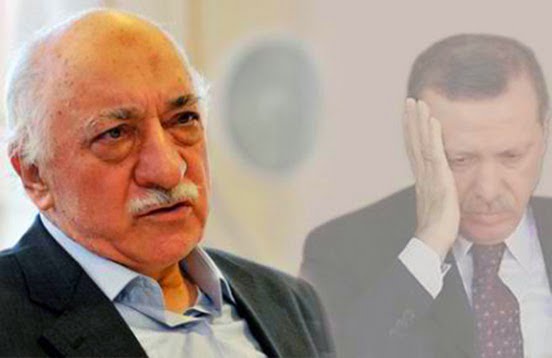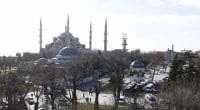Erdogan on a mission to seek allies more than trading partners

Date posted: January 27, 2017
Jean-Jacques Cornish
Turkish President Recep Tayyip Erdogan has wrapped a three-nation East African safari. He’s visited more than ten countries on the continent in the past 18 months.
As a burgeoning trading nation, Turkey is understandably seeking new markets.
This time, however, Erdogan was seeking practical and moral support for his battle against moderate Muslim cleric Fethullah Gulen.
He claims Gulen masterminded a botched coup attempt last year. The cleric, exiled in the United States, unequivocally denies this.
Erdogan either has to supply convincing evidence to back up the allegations he levels against Gulen and offer alternatives, or risk being seen to be imposing on African friends and risking to bilateral relations.
Erdogan no longer represents a country where the ring of cash registers predominates.
A series of terrorist attacks has dragged Turkey down to the level of its troubled neighbours.
The country bridging Europe and Asia has, in fact, become another Middle East trouble spot.
Bent on becoming a stronger executive president, Erdogan is seeking allies more than trading partners.
In Mozambique, he called on his Mozambican counterpart Felipe Nyusi to take action against Gulen.
Earlier in Tanzania, Erdogan warned at a joint press conference with President John Magufuli that he has evidence “that those elements who tried to topple our government are active in other countries as well”.
Erdogan wants the Gulen-linked schools in Africa to be closed down, although they are the very educational establishments which are popular with Africa’s middle class. They have sprung up all over Africa in recent years. They are an affordable alternative to French schools.
He was referring to African states in which Gulen’s Hizmet movement operates its international network of schools.
With Turkish government support, these establishments have helped to spread Turkish culture and influence abroad. Since the attempted coup in July 2016, however, the Turkish government has been mounting a crackdown on Gulen’s operations. Erdogan tried to drum up support for these punitive measures on his African tour.
He wants the Gulen-linked schools in Africa to be closed down, although they are the very educational establishments which are popular with Africa’s middle class.
There are some 20 Turkish schools in the Guinean capital Conakry and they have sprung up all over Africa in recent years. They are an affordable alternative to French schools.
The Hizmet movement has decades of experience in supplying quality education domestically.
Erdogan’s children are graduates of Gulen schools, although the Turkish president now contends Gulen’s master plan was to educate needy students and place them in military and public service positions with a long-term goal of state capture.
Erdogan either has to supply convincing evidence to back up the allegations he levels against Gulen and offer alternatives, or risk being seen to be imposing on African friends and risking to bilateral relations.
Erdogan no longer represents a country where the ring of cash registers predominates. A series of terrorist attacks has dragged Turkey down to the level of its troubled neighbours. The country bridging Europe and Asia has, in fact, become another Middle East trouble spot.
Relations with Tanzania appear stable. President Magufuli has asked Turkey for loans and investment for the construction of a rail link from Dar es Salaam to Zambia. It will connect Tanzania to Burundi, Uganda and the Democratic Republic of Congo. The project has been put out to tender and a Turkish construction company has a good chance of clinching the deal. Other donor countries pulled out of Tanzania following a corruption scandal there in 2015.
Erdogan’s seeking markets for the small and medium-sized companies have grown in strength in Turkey under his ruling Justice and Development Party (AKP). They belong to what is referred to in Turkey as the devout trading class which supports the AKP. Erdogan is looking for a foothold in markets that could become more interesting in the future. The market for Turkey’s construction industry in Africa is promising, albeit totally dwarfed by China’s involvement.
Source: Eyewitness News , January 27, 2017
Tags: Africa | Defamation of Hizmet | Guinea | Hizmet-inspired schools | Mozambique | Persecution of Hizmet by Erdogan | Tanzania | Turkey |
























